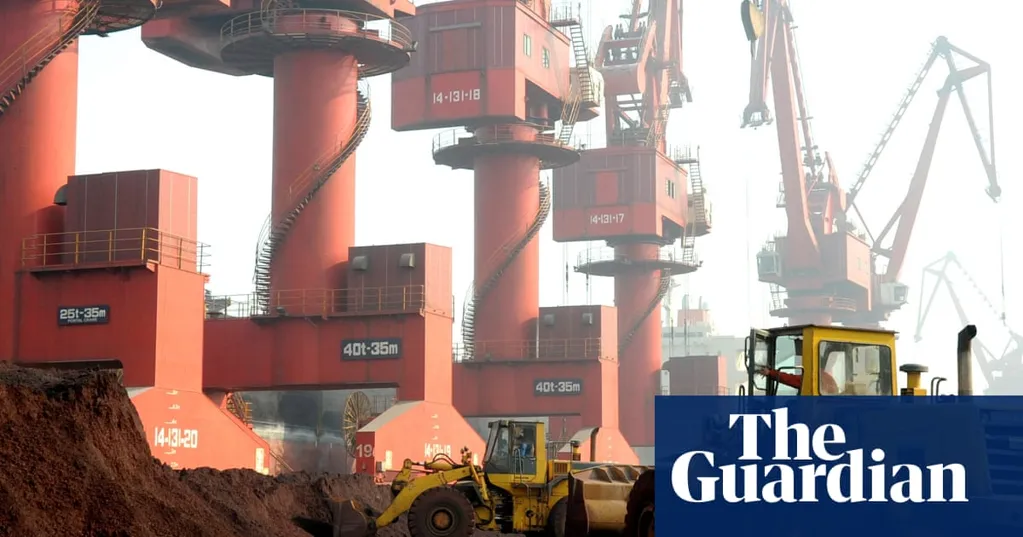After two days of negotiations in London, officials say previous agreement struck in Geneva will be implemented, pending approval of Donald Trump and Xi Jinping.
Officials from the US and China have agreed on a "framework" to move forward on trade after two days of talks in London stemming from their confrontation over tariffs.
The US commerce secretary, Howard Lutnick, expressed optimism on Tuesday that concerns about critical or "rare earth" minerals and magnets "will be resolved" as the deal is implemented.
Lutnick told reporters that the framework puts "meat on the bones" of a deal reached last month in Geneva to ease retaliatory tariffs. Its implementation had faltered over China's curbs on critical mineral exports. The deal also would remove some US export restrictions that were recently put in place, Lutnick said.
"We have reached a framework to implement the Geneva consensus and the call between the two presidents," Lutnick said. "The idea is we're going to go back and speak to President Trump and make sure he approves it. They're going to go back and speak to President Xi and make sure he approves it, and if that is approved, we will then implement the framework."
In a separate briefing, China's vice commerce minister Li Chenggang said a trade framework had been reached that would be taken back to US and Chinese leaders.
"The two sides have, in principle, reached a framework for implementing the consensus reached by the two heads of state during the phone call on June 5th and the consensus reached at the Geneva meeting," Li told reporters.
Lutnick said China's restrictions on exports of critical minerals and magnets to the US would be resolved as a "fundamental" part of the framework agreement. "Also, there were a number of measures the United States of America put on when those rare earths were not coming," Lutnick said. "You should expect those to come off, sort of as President Trump said, in a balanced way."
Li said: "Our communication has been very professional, rational, in-depth and candid."
All eyes were on the outcomes of negotiations as both sides were at an impasse over export restrictions, with US officials earlier accusing Beijing of slow-walking approvals for shipments of critical minerals.
The world's two biggest economies were also seeking a longer-lasting truce in their escalating tariffs war, with levies reduced temporarily.
"We're moving as quickly as we can," US trade representative Jamieson Greer told reporters. "We feel positive about engaging with the Chinese."
